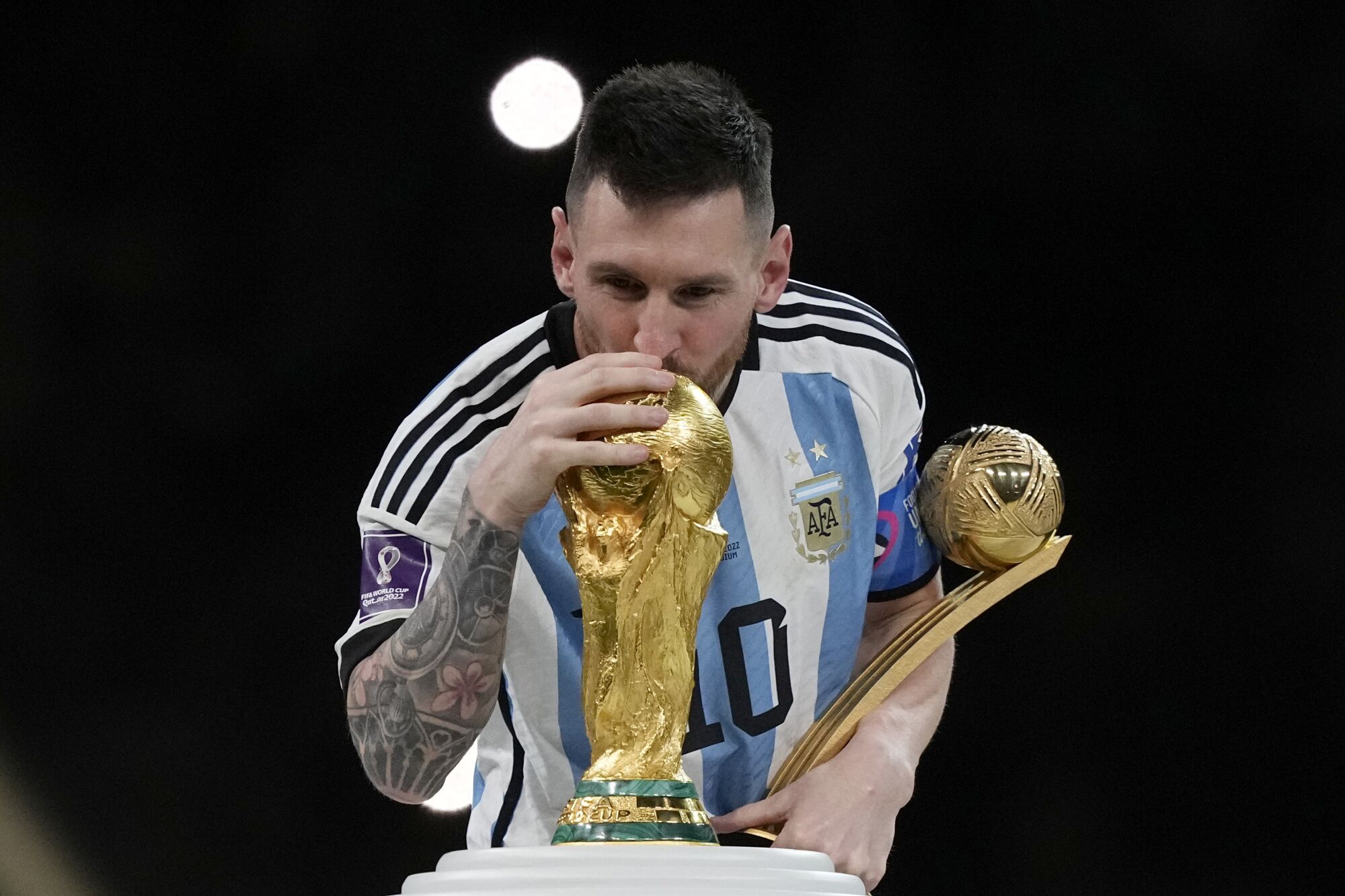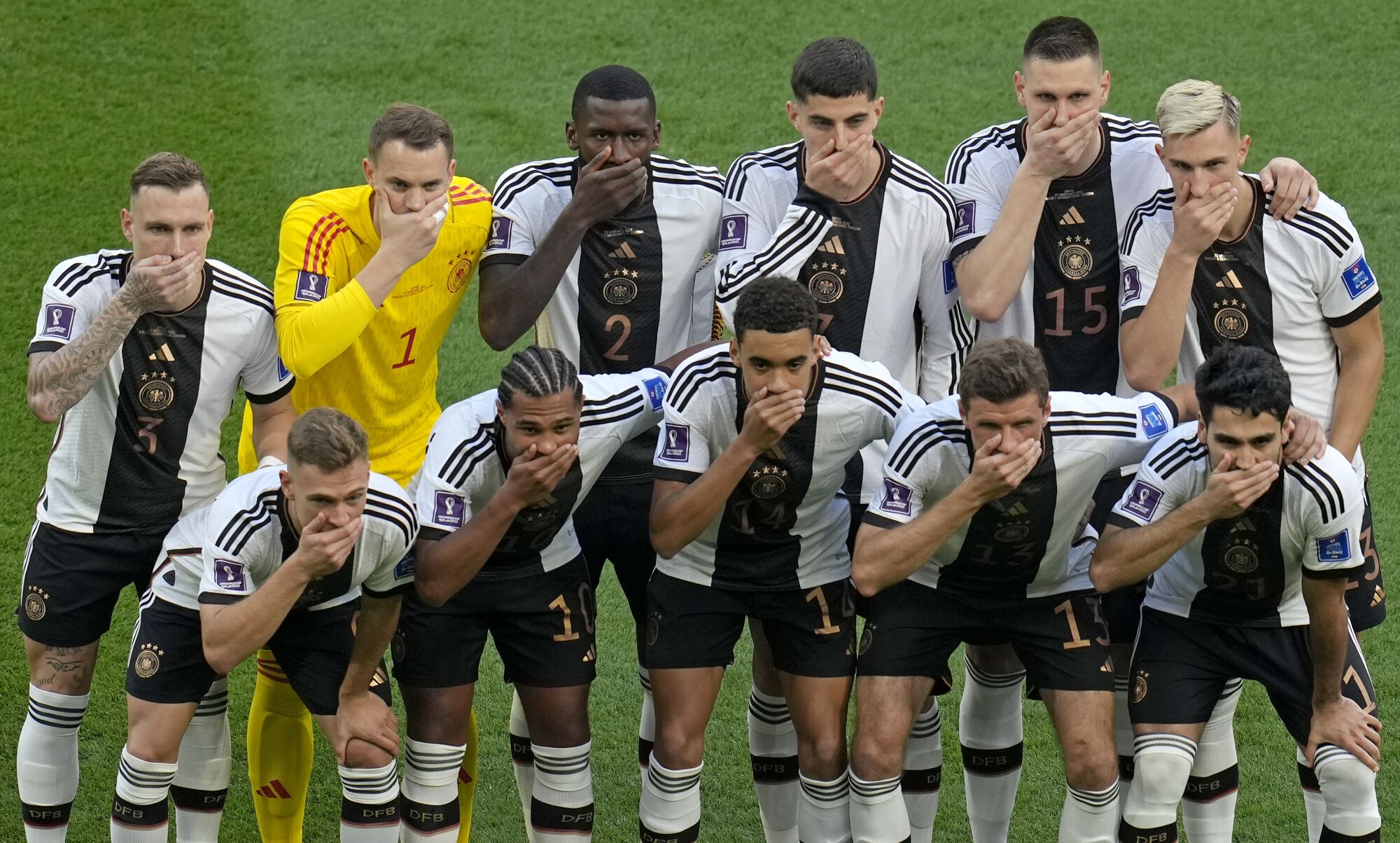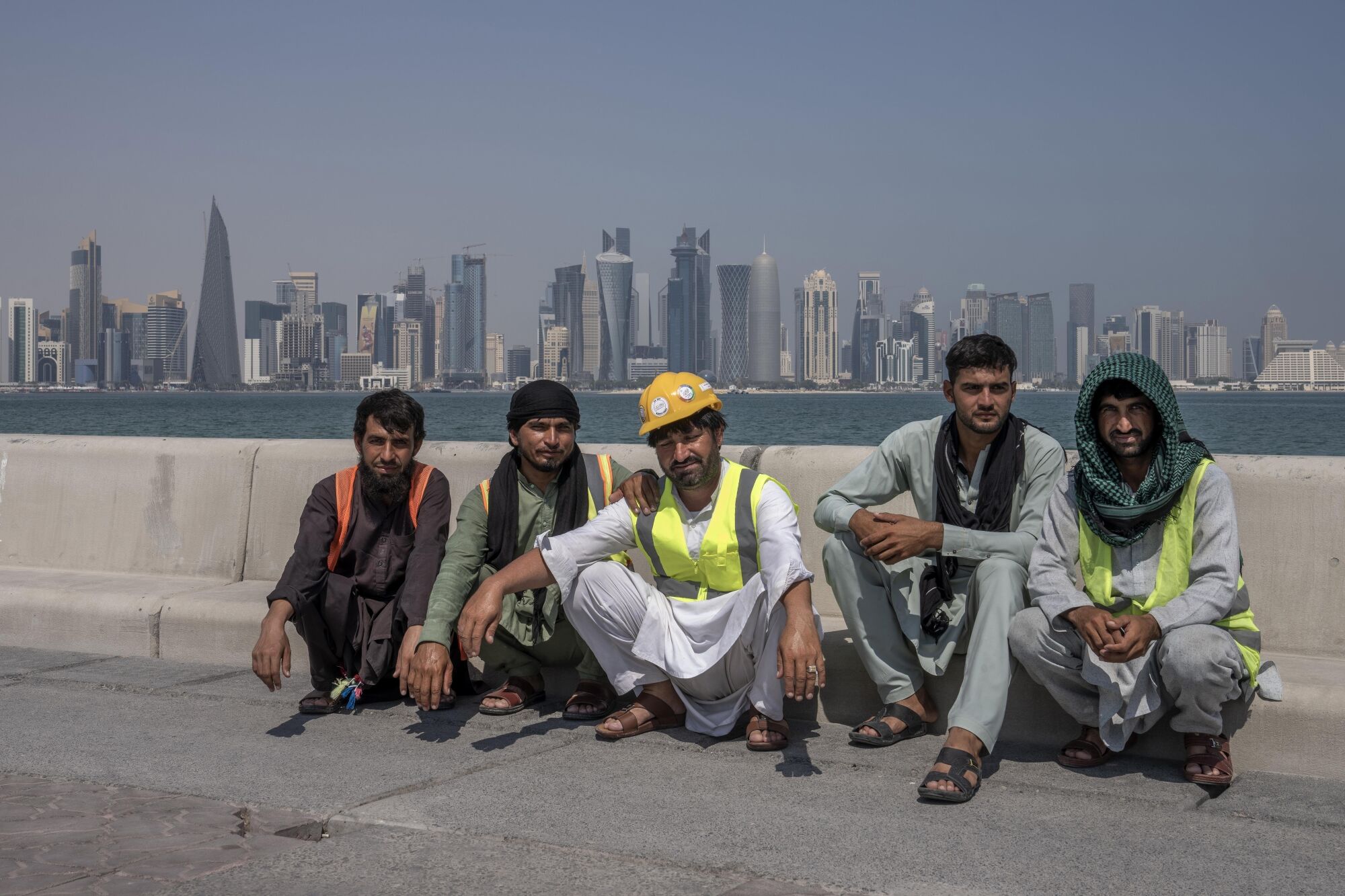Analysis: Most dramatic World Cup final caps a unique tournament in Qatar
A World Cup that opened with a beer ban ended with a champagne toast. A tournament that started with a call for cultural sensitivity finished with a cultural icon being celebrated.
The first World Cup held in the Middle East and the first played in a majority-Muslim country will someday be remembered for many things, but for now there’s no reason to look past Sunday’s epic final, which ended with Lionel Messi finally lifting the 14-inch solid gold World Cup trophy as fireworks exploded from the roof of a sold-out 89,000-seat stadium, lighting up the night sky.
It was the only prize Messi, widely considered the greatest player in soccer history, had never won. And when he came face to face with it for the first time after Argentina’s penalty-kick win over France, he paused to give it a gentle kiss.
In football-mad Argentina the late Diego Maradona, who led Argentina to its last world championship in 1986, is so revered, there was a religion — La Iglesia Maradoniana or the Church of Maradona — dedicated to him. In Messi’s hometown.
Messi, meanwhile, can’t even claim a pew. But that might soon change after tens of thousands of people poured into the streets of Buenos Aires to celebrate Sunday’s title.
Messi’s title.
Argentina’s captain scored seven goals in the tournament; six of them gave Argentina a lead. His two goals Sunday also made him the first player in history to score in all five rounds of a World Cup: the group stage, the round of 16, the quarterfinals, semifinals and final.
And when it was over, Gianni Infantino, the president of FIFA, global soccer’s governing body, handed the World Cup trophy to Messi, who might have done more than any other player in history to earn it.
“We’ve done it,” said Messi, whose postgame celebration was a mix of smiles and tears. “We couldn’t have asked for more. What can I say? We were destined to become world champions and now we are.”

Lionel Messi kisses the World Cup trophy after Argentina’s victory over France in the Qatar World Cup final.
(Martin Meissner / Associated Press)
No one has played more World Cup games than Messi, a seven-time world player of the year, and only Cristiano Ronaldo of Portugal has scored more goals for club and country. Messi has won league titles in France and Spain and played more games and scored more goals than anyone in Argentine history.
But at home, where soccer is more a passion than a sport, the national team is everything. And all Messi had brought it was an Olympic gold medal in 2008 and a Copa América title last year. Now he has as many World Cups as Maradona.
“It’s just a football game. Life goes on. Your problems will still be there,” Argentina coach Lionel Scaloni said. “But maybe this will make people just a little bit happier. We managed to lift this trophy. Something we’ve been dreaming about for so long.”
But if the World Cup ended in a dream, it started as anything but. Two days before the opening game of a tournament Qatar had waited 12 years to stage, the government told FIFA it wouldn’t honor an agreement to let Budweiser, a major World Cup sponsor, sell beer at the tournament’s eight stadiums. With FIFA’s help, the country also banned rainbow-colored clothing and other LGBTQ-friendly symbols from tournament venues.
The hard line came in response to public concerns that the 1.2 million visitors expected to flood Qatar for the monthlong tournament would not respect the culture and laws of a country where alcohol sales are heavily restricted and same-sex relationships are prohibited.
Germany’s players reacted by wearing rainbow colors on their boots and covering their mouths with their hands during a team photo, claiming FIFA was censoring them. Iran’s team also went silent, refusing to sing the country’s national anthem in a show of support for women’s rights protesters at home. It fell to Morocco, which hadn’t won a World Cup game this century, to bring the focus for many back to soccer.

Germany’s soccer team players cover their mouths in show of protest before a World Cup group match against Japan on Nov. 23.
(Ricardo Mazalan / Associated Press)
In the first Arab World Cup, Morocco united the Arab world by rolling into the semifinals unbeaten. It knocked Belgium, the second-ranked team in the world, and Spain, the 2010 champions, out of the tournament, then sent Ronaldo and Portugal home with a win in the quarterfinals. Morocco didn’t allow an opposing player to score in five games, becoming the first Arab country and first African country to reach the World Cup’s final four.
“We realize that we made a great achievement. We saw the pictures and we saw that everyone was proud of us in our country,” said Walid Regragui, the team’s French-born coach. “I think the world as a whole is proud of this Moroccan team because we show great desire.”
Speaking of great desire, Qatar’s wish for this World Cup was to showcase itself to the world. But while 12 years of planning and more than $220 billion in infrastructure spending bought seven new stadiums, world-class museums and a state-of-the-art public transportation system, it couldn’t hide the country’s horrific treatment of migrant workers, which drew scorn from human rights groups around the globe.
That spotlight grew brighter early in the World Cup when the secretary general of Qatar’s Supreme Committee for Delivery and Legacy, which helped organize the tournament, admitted there had been “400 to 500” migrant-workerdeaths related to World Cup construction, dozens of times the number the government had previously claimed.

Pakistani migrant laborers pose in front of the skyline of Doha. Migrant laborers who built Qatar’s World Cup stadiums often worked long hours under harsh conditions and were subject to a number of abuses, according to human rights groups.
(Nariman El-Mofty / Associated Press)
The human rights issues, the free speech questions and the sidelining of a major corporate sponsor probably won’t help Qatar in its bid to host the 2036 Olympics. If Infantino wasn’t already bald, he certainly would have been tearing his hair out after a month of dealing with the Qataris’ ever-changing whims. Why would the International Olympic Committee voluntarily put itself in the same position?
Which is why Sunday’s game, played on National Day, the commemoration of Qatar’s unification and the country’s most important secular holiday, was so important. It wasn’t the greatest final ever played; France’s poor play for most of the first 80 minutes disqualifies the match from that conversation. But as pure theater, it might have been the best ever, the drama likely unmatched.
Argentina took a 2-0 lead into the final 10 minutes only to have France’s Kylian Mbappe score two quick goals to tie the score. Messi untied it in the second extra-time period, only to have Mbappe tie it again, this time with two minutes left, sending the game into a penalty-kick shootout that Argentina won — with Messi contributing the first goal.
Afterward, Mbappe was consoled by his country’s president, Emmanuel Macron, while Messi was congratulated by an emir, with Qatar’s leader giving him a Bisht, a black and gold robe, and a backslap. All he really wanted was the World Cup trophy, which he gripped tightly as his teammates carried him off the field after what he said was his last World Cup match.
Scaloni, the coach, was asked afterward if Messi, who will be 39 when the next World Cup final is played in the U.S., might reconsider his retirement.
“If he wants to keep playing,” Scaloni said, “he’ll be with us.”
For all the latest Sports News Click Here
For the latest news and updates, follow us on Google News.
